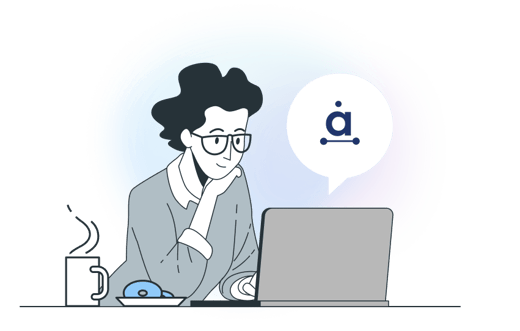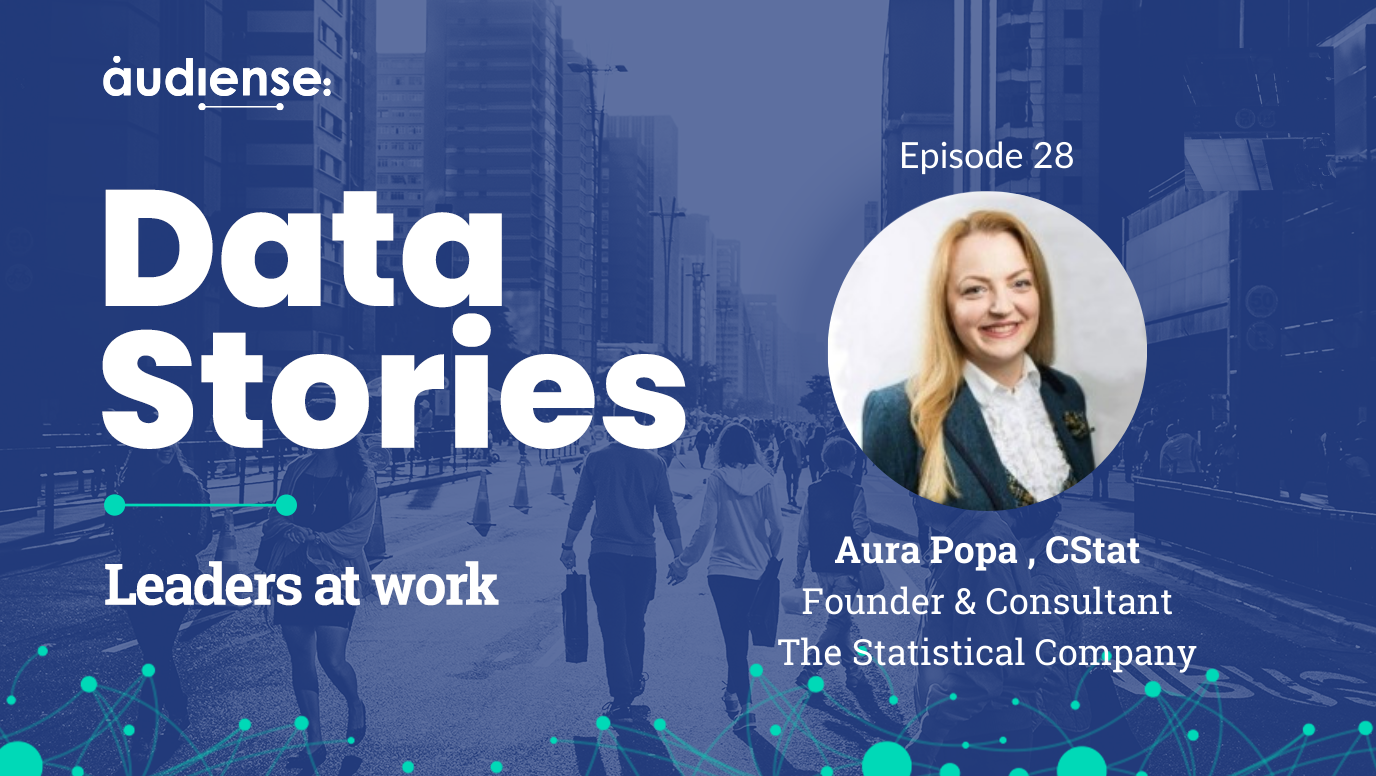[PODCAST] Your competition isn’t other people, it’s you!
Data Stories: Leaders at Work is a weekly podcast brought to you by Audiense. Hosted by Rahul Jerome, founder of insight-intelligence.com, the series captures personal anecdotes and career highlights from some of the most talented and brightest minds in the research and insights industry.
In this episode of Data Stories: Leaders at Work, I talk to Aura Popa, a consultant and founder of The Statistical Company.
In the first segment, Aura discusses her background and her passion for data science. Unlike many guests that are featured on this podcast, Aura knew from a young age what she wanted to do with her life. During high school, she excelled in mathematics, and, with the aid of a career aptitude test, she realised that her purpose was to pursue statistics. In college, she continued to excel in her concentration, focusing on statistics and econometrics. She became a Teaching Assistant in graduate school when one of her professors noticed an innate passion for teaching – this opportunity helped Aura become even more skilled in the field. During her tenure in graduate school, Aura was also a Research Assistant, which allowed her to travel to various European countries. Ultimately, she felt that the UK would provide a better opportunity for her career than her home country Romania.
Because data science and statistics are broad domains, they are sometimes viewed as similar factions, but Aura explains the differences between the two. Essentially, Aura explains the concept of data science exists on a broader, surface level, whereas specialties within statistics dive much deeper into these methodologies.
Contrasting dynamics: agency vs client-centered projects
In the next segment, Aura discusses her time in the industry on both the client-side and the agency side and what she enjoyed about both factions. The goal of the agency side was to provide a wide range of services for clients while maximising the number of clients. On the other hand, the client-side focused on one specific industry. Aura found this quite appealing because she could analyse a problem inside and out, understand and create a story based on the data, and assess the implications of the data. Overall, she explains that there are contrasting dynamics with the agency- versus client-centered projects. Aura felt an urgency on the agency side to deliver fast service on numerous projects. Though there was still a sense of pace on the client-side, Aura mentions that this faction gave her more space to think, strategise, and deliver more quality work.
Aura lists some tips she wished she had known at the beginning of her career:
- Don’t work too much. Sometimes when we are so engrossed in our careers, we put our personal lives on the back burner, which is not healthy for you or your family. She notes that ‘sitting is the new smoking’ – sitting and working all day is not healthy.
- Find your niche within your job. She advises the listeners to not feel overwhelmed, rather find your specialty and hone in on the aspects you enjoy.
- Get a mentor. Their purpose is to help guide you in the direction you desire, and they want you to succeed.
I follow up by discussing whether these mentors need to be within the same specialty or if they can be outside of the field of interest. Aura believes that choosing a mentor within the same field is imperative. First, the mentor needs to understand the processes and intricacies of the industry. Second, it is important for the mentor to be able to assess skills in relation to the skills that will help their protégé develop and thrive in the industry. And third, the mentor should be the expert – being well-versed in techniques, methodology, software, etc.
Growing a person from ‘stage zero’
As someone who benefitted from having various mentors, Aura lists a few that have been beneficial to her. Ultimately, she addresses that these mentors were able to assess her skills and critique her weaknesses. For example, one of her mentors noted that she was excellent in technical abilities yet lacked in certain soft skills, so Aura improved those abilities, which gave her more confidence in her position. She further mentions that these mentors should be growing a person from ‘stage zero’ and giving them opportunities to develop their skills – for example, sit in meetings to develop better communication and negotiation skills.
In the last segment, we discuss Aura’s personal vision for her career and advice for those who are interested in pursuing data science. At the moment, Aura is content with her position, and she plans to get more involved in the societies she’s involved in to give back to the organisations that gave her support throughout her career. She advises anyone interested in the data science industry to have a good background and passion for mathematics. She also mentions that it is important to understand the reality of data science – do not simply go into the industry for the money. And lastly, continuous personal development is very important, especially as the data science industry continues to grow and shift.
The full version of the podcast with Aura Popa can be listened here:





